What to expect at UX Brighton
Research belongs at the heart of UX. It guides our work and shapes our decisions. That’s why Advancing Research was the theme of UX Brighton 2018.
It’s time to take a look at the place of research within the UX landscape - time to further our knowledge of tools and methods, and time to extend our research skills to embrace new technologies.

9:00 Registration
Doors will open at 9am for registration. Name badges will be arranged alphabetically by first name.
Complimentary pastries and refreshments will be available.
Use the Dome entrance on Church Street. It’s approx 9 mins walk from the train station
Please note that The Dome may conduct bag searches.
Please be seated by 9.50am so you don’t miss anything.
ShowHide details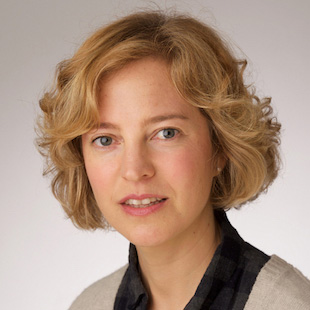
10:00 ResearchOps – Kate Towsey
Slides for What is ResearchOps?
In March 2018, the ResearchOps Community was formed with the intention of validating and shaping the practice of ResearchOps. Since then, the Community Slack has grown to 1000+ members and many more are part of the conversation in person or on Twitter.
Core to the Community has been a global research initiative called #WhatisResearchOps. A team of 60 researchers have worked together to run 32 workshops around the world to ask researchers about their challenges and triumphs, and their expectations of ResearchOps. To make sure we reached people who couldn’t get to a workshop, we also ran a survey. In total, more than 800 people have taken part in the initiative.
In this talk, Kate shared the background to the Community, what they’ve learned from #WhatisResearchOps, and the first iteration of the framework. Kate spoke on behalf of TeamReOps: all the organisers and thinkers from around the world who’ve donated countless hours to the effort and are making ResearchOps what it is today.
About Kate
Kate believes that in order for research to be truly valuable, it must be done thoroughly, professionally, and securely. She creates labs, panels and archives that are carefully designed to meet demanding specifications, sometimes assembled with minimal resources, but never compromising quality.
Working freelance, Kate refuses to fit neatly within job titles. Instead, she takes an entrepreneurial approach to her work with government, agencies, universities, broadcasters and others. The BBC and Co-Op are the current beneficiaries of Kate’s exacting approach.
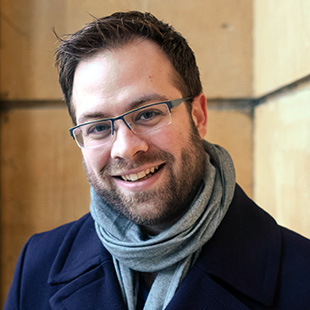
10:45 Daniel Pidcock The Power of Atomic UX Research
Slides for Atomic Research
You may have heard of Atomic Design — Now comes Atomic Research, a new way to organise UX knowledge in an infinitely powerful manner.
Whilst with a FTSE 100 tech company, Daniel Pidcock was tasked with solving how to store and distribute the organisations UX learnings in a way that everyone in the business could use and benefit from them.
On the way to working this out, he discovered the power of Atomic Research. Not just for storing UX knowledge but as an incredibly useful way to think about research itself.
About Daniel
Daniel Pidcock is a Bristol based User Experience Designer from a digital UI design background.
In his career he has worked with several major brands such as Just Eat and Clarks. He’s also worked with many innovative start-ups and even founded and sold a few of his own.
He is a passionate advocate for Atomic Research and is working on a tool called Glean.ly to help companies make their UX knowledge usable.
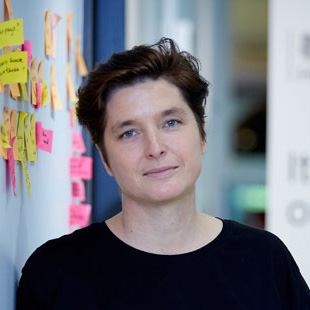
11:40 Katy Arnold Building a user research practice in the Home Office
Slides for Building a user research practice in the home office
The Home Office is responsible for delivering some of the most challenging and complex services in government. So it seems fitting that we have a team of 100 researchers and user centred designers helping us modernise how we work.
But it wasn’t always this way.
This talk showed how it is possible to advance user research in large organisations even when they’re not used to this way of working. Katy shared the steps they took to create space for people to do their best work, and how they built a vibrant user research practice in one of the great departments of state.
About Katy
As head of user research at the Home Office, Katy is at the forefront of work to shape essential digital services used by millions of people. She is committed to raising standards of user research in the department, and is building and leading a community of skilled practitioners within the UK Government.
Katy enjoys advocating for the value of user centred design and is passionate about building public services that work for everyone. She is a regular speaker at conferences and events around Europe.
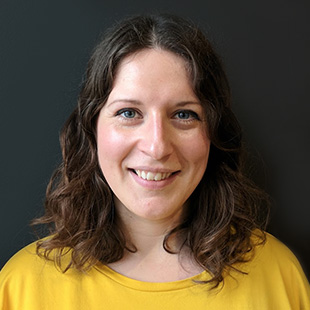
12:05 Georgia Rakusen Internal UX
Slides for Internal UX
When we talk about user research, we’re usually referring to finding out the needs and pains of the end user or customer. But research can also be used by an organisation to look inwards, to improve the day-to-day for employees and help the company achieve its KPIs.
Georgia presented a range of “internal” research case studies, focusing on different business problems, to demonstrate the alternative ways researchers can create positive change for their colleagues.
This talk empowers you to explore using User Research methods to solve the needs of your own organisation.
About Georgia
Georgia Rakusen is an experienced UX researcher with a background in tech and start-up companies. She currently holds a lead research position at the blockchain organisation ConsenSys.
Georgia’s particular specialism involves research into the UX of the digital experiences that take place between colleagues. Her research into ‘internal UX’ helps improve the flow of communication and collaboration between a company’s designers, technologists, marketers and others.
Internal UX is often overlooked within an industry that focuses its research on customer interactions. Georgia reminded us all that the observations and improvements we can make around internal experiences can be equally important to business success.
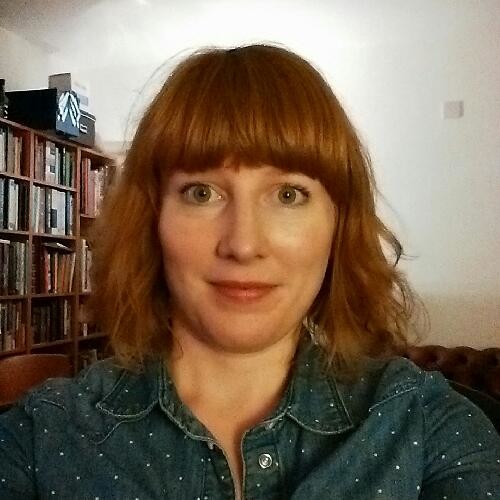
2:00 Katie Taylor A true story of Usability Benchmarking
Slides for True stories of usability benchmarking
It sounds simple, and it is: usability benchmarking is measuring how many people are successful at a number of tasks in the product or service you’re designing. What happens when there are more things users can do than you have time to benchmark? How do you choose a subset of tasks to measure? Which tasks are most important? And what do you do with your benchmarking results?
Katie talked about her experience of usability benchmarking, using Gerry McGovern’s top tasks method, and adapting it to suit different situations. She warned us about the things to avoid, how to learn from her mistakes, and the benefits of using benchmarking results to inform product design.
About Katie
Katie Taylor is Head of Experience Design at the Wellcome Trust, where she leads a team that works on a diverse range of products from research grants to aids for primary school science teachers. Before joining Wellcome, she worked at the UK's Government Digital Service (GDS) as lead user researcher on GOV.UK.
Katie has a background in user-centred design and user research. She has previously worked on Ubuntu an open source operating system and designed printers for Hewlett-Packard in Shanghai, China

2:25 Will Myddelton Research Heresies
Slides for Research Heresies
As user research has matured we've accumulated slogans and dogma about what it means to be a good researcher. At times these get in the way of helping our teams improve their services. Will shared some awkward truths - learned from bitter experience - that will help you escape the dogma and become a better user researcher.
About Will
Will Myddelton is a lead user researcher at the Home Office, where he helps a team of researchers improve the UK's immigration services. Before that he worked at the UK's Government Digital Service (GDS) on GOV.UK Notify and GOV.UK Pay.
Will has a background as a user-centred designer and is about to join a small charity called Local Welcome as a product manager. He previously worked at the design agencies cxpartners and Blue Latitude.
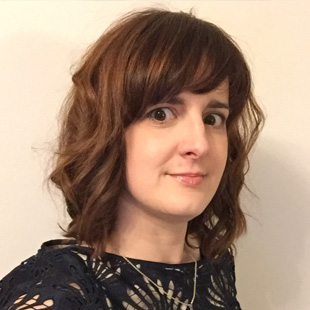
3:20 Emma Boulton Real World Discovery Research
Slides for Real world discovery research
Have you ever had to do discovery research with no budget and no user researchers? Or is your discovery process limited to stakeholder interviews and competitor research? The market research industry are constantly berated for relying on focus groups but the same criticism could be levelled at the UX industry’s go-to methodology - lab based usability testing. One to one interviews in a lab are a great research methodology to choose when you have a clearly defined solution and are iterating on it. What about when you’re shaping the problem space and defining which user needs to focus on?
In this talk, Emma Boulton shared examples of real world discovery research to inspire you to get out from behind your computer and open up your senses to the real world.
About Emma
Emma is a passionate advocate for the role of research within design. Her 18 years of experience have made her a trusted and entertaining voice on all aspects of UX research. Emma’s solid background of work at the BBC, at Monotype, and in other agency and client-side roles, gives her valuable, insightful perspectives that she loves to share.
Emma firmly believes in the need for high quality research, integrated within every aspect of the processes we create as teams of designers and other professionals.
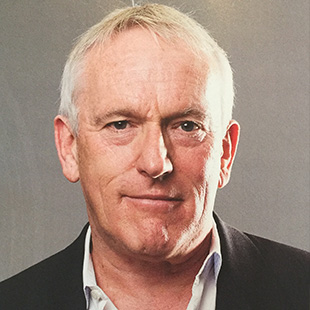
3:45 James Woudhuysen Some ABCs of Forecasting
Slides for Some ABCs of forecasting
For all its past errors, forecasting is something UX professionals will be expected to make part of their repertoire – particularly when project lead-times are long, and the prospective new system is meant to last, adapt to change and all that.
In this talk, James outlined some Dos and Don’ts to remember when imagining how people are likely to evolve in the years to 2030.
Among his recommendations: Think Asia. Interrogate fad categories. Distinguish real risks from perceived risks. Rate forecasting algebra higher than forecasting arithmetic. Most importantly, make a synthesis of tendencies and counter-tendencies.
About James
Professor James Woudhuysen is a forecaster, a futurist and a big strategic thinker. With a background in technology, manufacturing and academia, he’s built a formidable reputation for looking ahead to identify the trends, risks and innovations with the potential to shape the way we live and work.
While James is widely known for the vision and frankness within his own forecasting, he’s a great believer in enabling us all to develop useful, practical and sensible forecasting skills. He freely shares his advice on what researchers can do to get to grips with the future that awaits their customers, their industry and ways of working.
UX Brighton consistently sends me away with a renewed sense of purpose and a drive to continue to simply make the world a better place through useful, purposeful user experiences.
Phil Parker
Engaging, thoughtful and will definitely affect the way I work in the future.
Alexander Cook
A great opportunity to recharge your UX batteries and stimulate thought.
Rachel Smith


